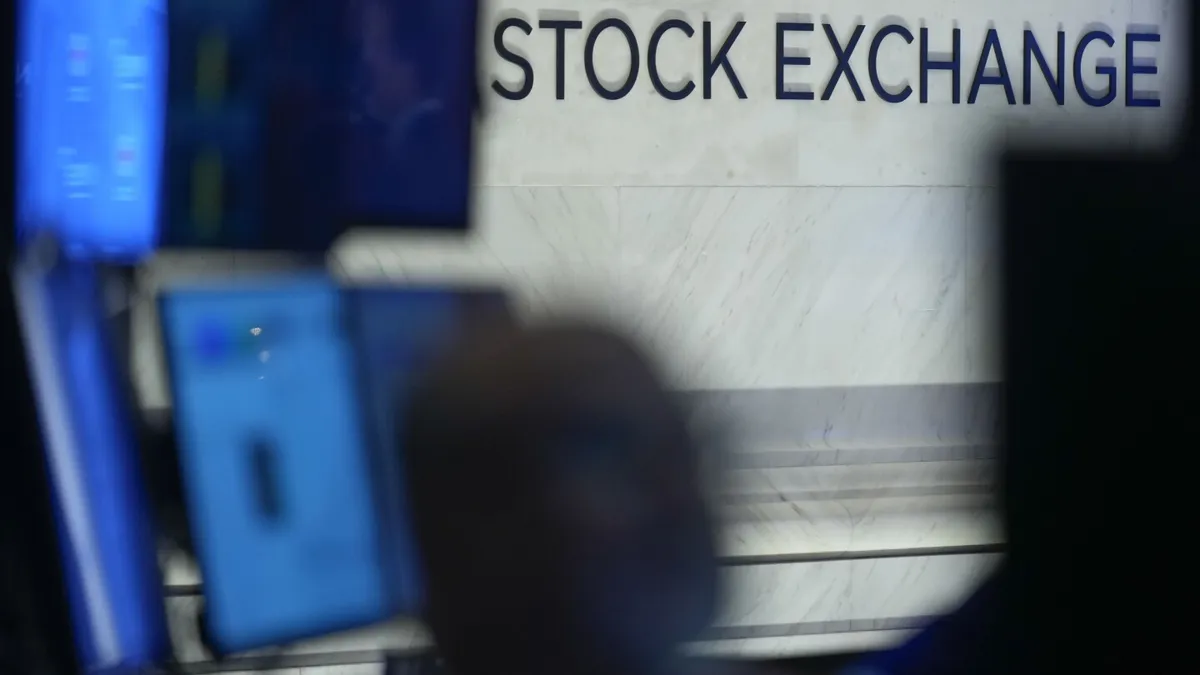
On Tuesday, Wall Street demonstrated a steadier performance after a significant surge on Monday, fueled by optimism surrounding President Donald Trump’s tariffs. The S&P 500 index rose by 0.2% in morning trading, following a remarkable jump of 1.8% the previous day. The Dow Jones Industrial Average gained 50 points, translating to a 0.1% increase as of 10:30 a.m. Eastern Time, while the Nasdaq composite also saw a slight increase of 0.2%.
U.S. stocks have recouped a substantial portion of their earlier losses, having previously fallen 10% below their all-time high earlier this month, marking the first significant market correction since 2023. Currently, the S&P 500 is down approximately 6% from its peak, a decline that has rendered the market relatively more affordable, addressing concerns that had emerged following its meteoric rise in recent years.
Despite the recent recovery, strategists on Wall Street caution that more volatile market swings are anticipated, particularly with an upcoming April 2 deadline looming. This date, referred to by Trump as “Liberation Day,” will mark the beginning of a series of global tariffs aimed at trading partners, which he believes will balance the perceived economic burdens on the United States.
Monday’s rally on Wall Street was largely attributed to hopes that Trump’s proposed “reciprocal tariffs” might be more focused and less damaging than initially feared. According to Ajay Rajadhyaksha, global head of research at Barclays, there is a risk of a sudden tariff shock in early April, given traders' expectations of market volatility and the relatively stable values of the Mexican peso and Canadian dollar since the last tariff postponement.
Even if Trump’s tariffs prove to be less harmful to the global economy than anticipated, the ongoing discussions surrounding them have negatively impacted consumer and business confidence in the U.S. A report released on Tuesday revealed that pessimism among U.S. households is growing. The Conference Board’s consumer confidence index fell more than expected, primarily due to a sharp decline in short-term economic expectations, reaching its lowest level in 12 years. This index now sits well below the 80 threshold, which typically indicates a potential recession.
While actual economic activity and the job market appear to be holding steady, the rising concerns among U.S. companies and consumers may lead to reduced spending, further threatening economic stability.
In corporate news, Trump Media & Technology Group saw an impressive 8.8% jump after announcing a partnership with Crypto.com to launch a suite of “America-First” investment funds. These exchange-traded funds (ETFs) will focus on bitcoin, other digital assets, and what TMTG describes as “securities with a Made in America focus” across various industries, including energy. Crypto.com will provide backend technology, custody, and cryptocurrencies for these ETFs, which will operate under the Truth.Fi brand.
On the other hand, homebuilder KB Home experienced a 4.2% decline after reporting disappointing profit and revenue figures for the latest quarter, raising concerns about rising costs stemming from tariffs that may ultimately be passed on to buyers. Additionally, a report indicated that U.S. sales of new homes were slightly below economists' expectations.
McCormick, a spice seller, also faced challenges, with its stock slipping 0.2% following a weaker-than-expected profit report, citing “current uncertainty of the consumer and macro environment.” Meanwhile, Tesla fluctuated between modest gains and losses, recently down 0.6% amid troubling sales figures from Europe, where electric vehicle sales dropped nearly 50% compared to the previous year, despite overall growth in the market for battery-powered cars.
In international markets, stock indexes across much of Europe rose following a mixed finish in Asia. In the bond market, Treasury yields saw a slight decline, with the yield on the 10-year Treasury falling to 4.32% from 4.34% late Monday.